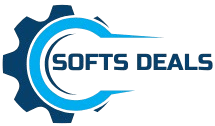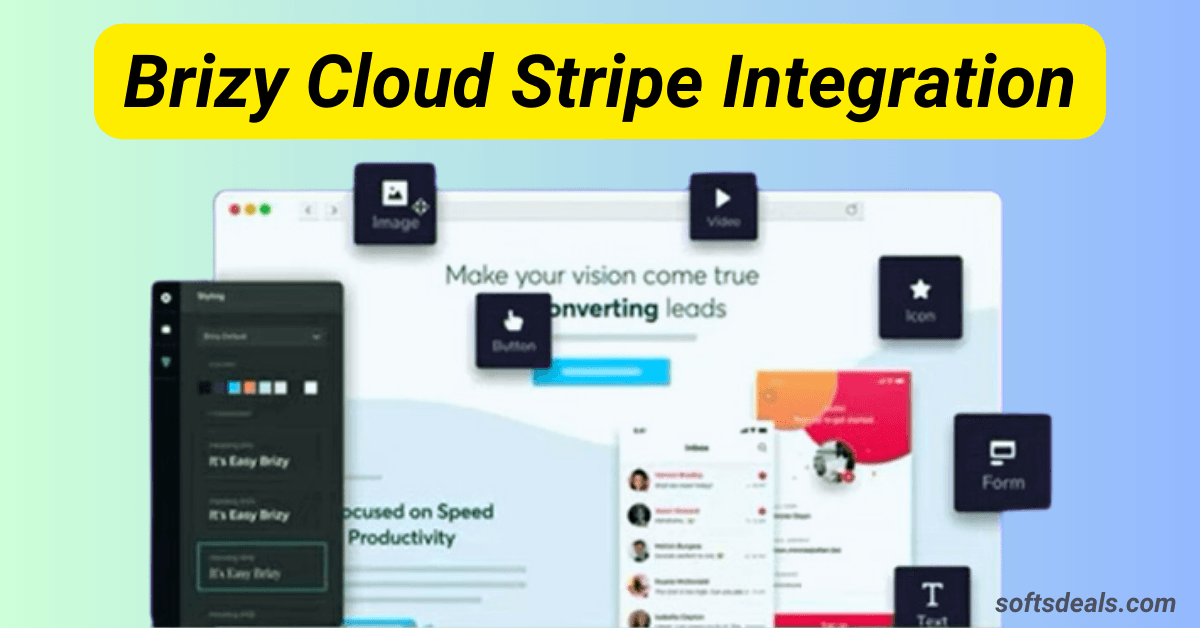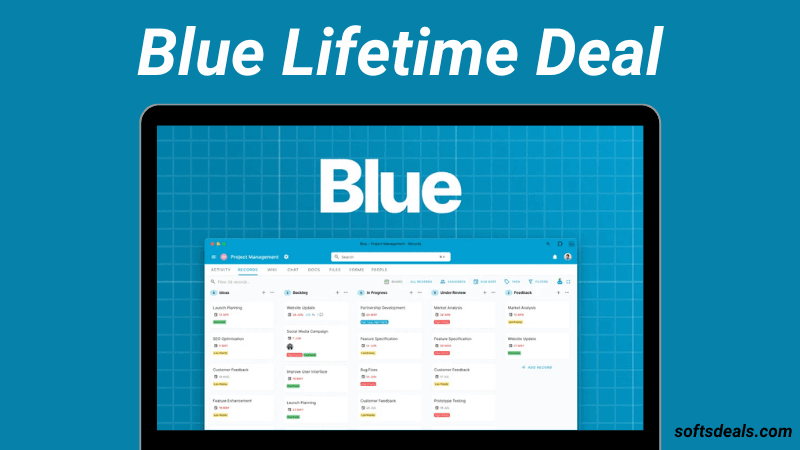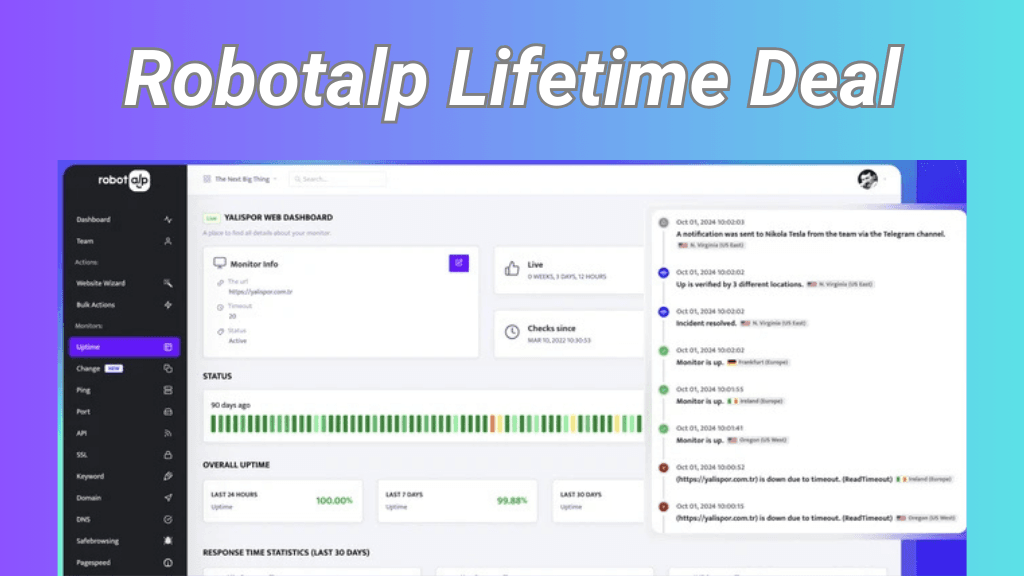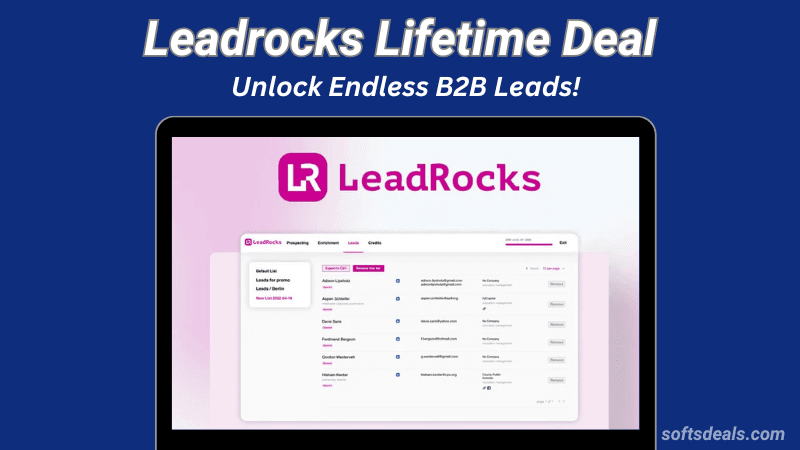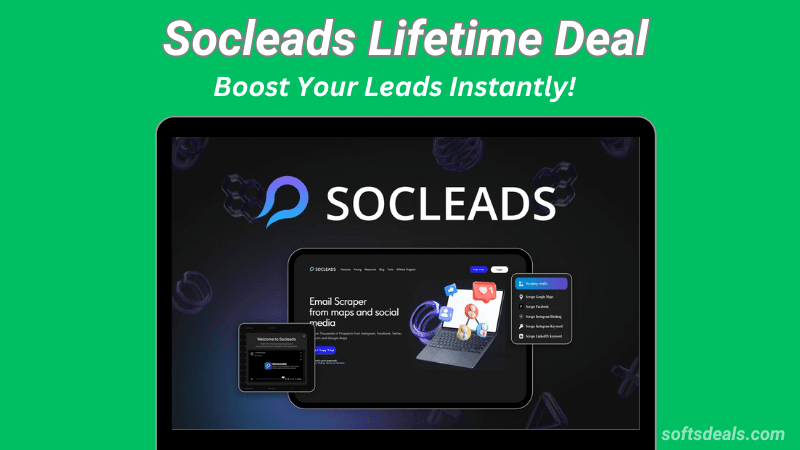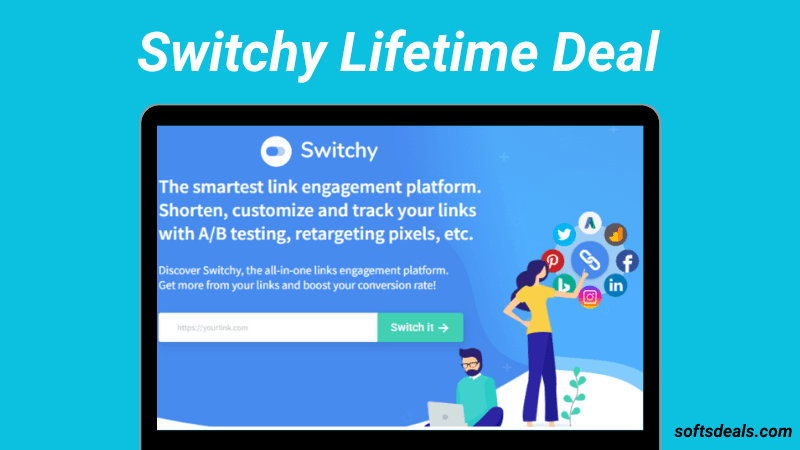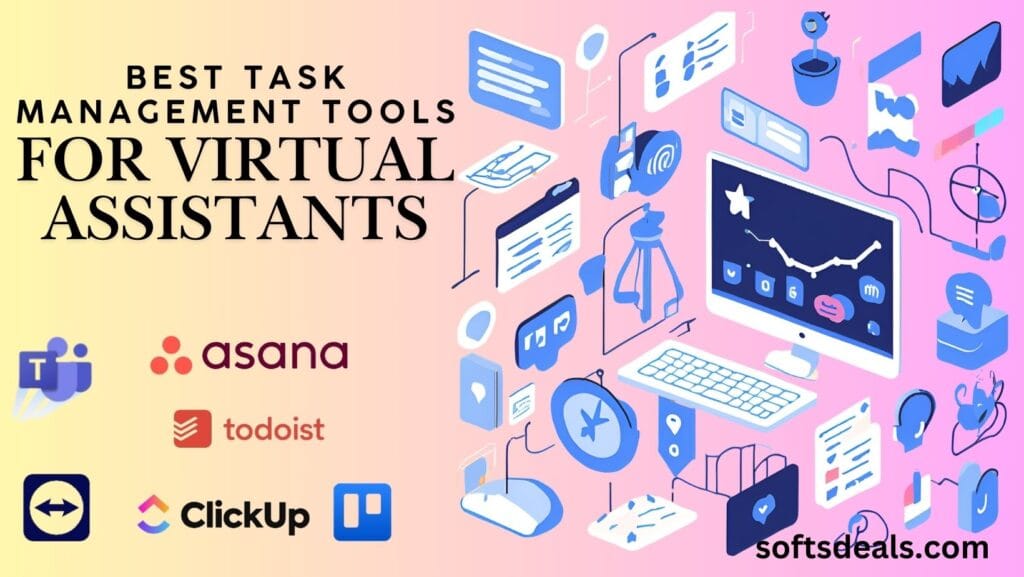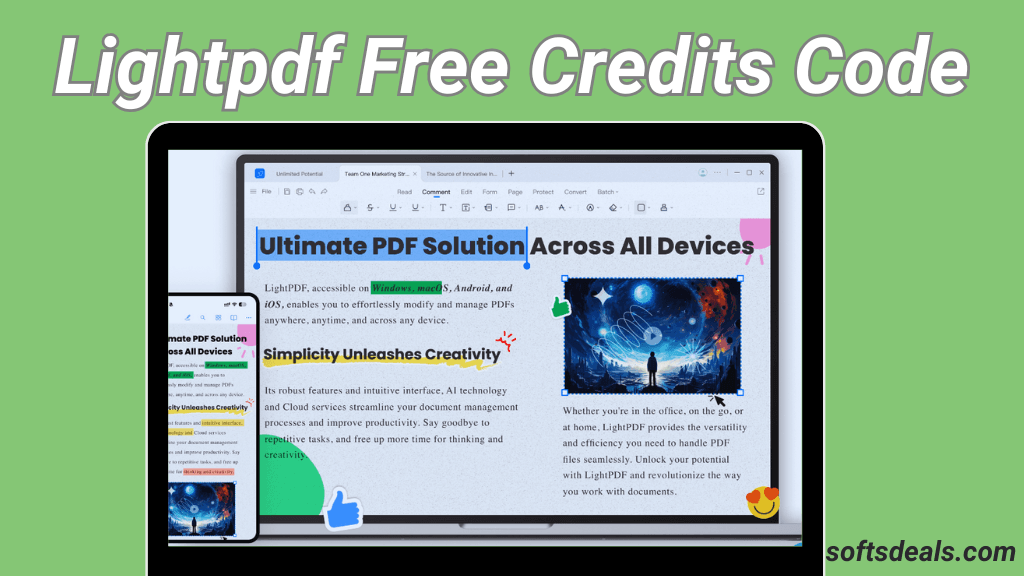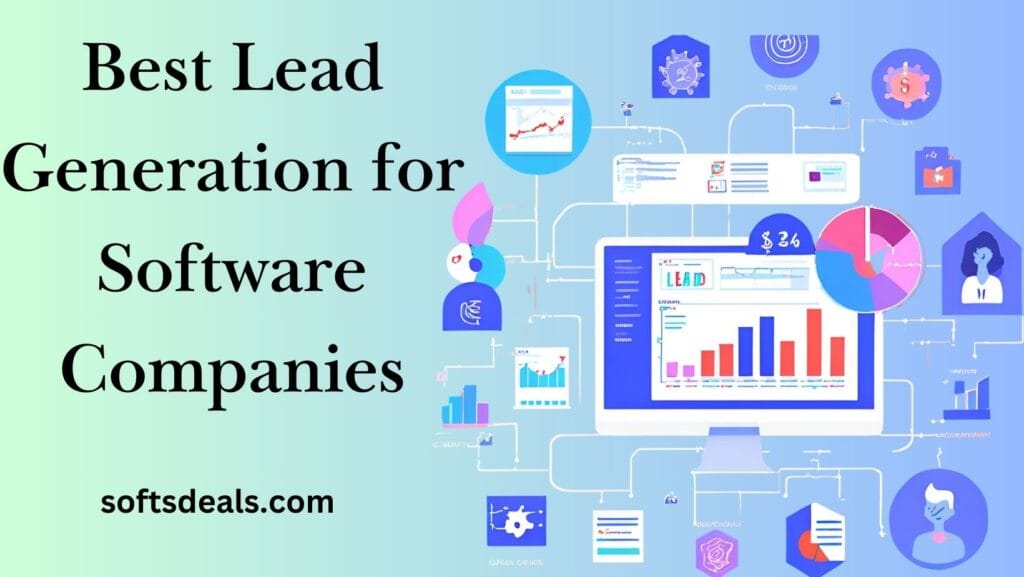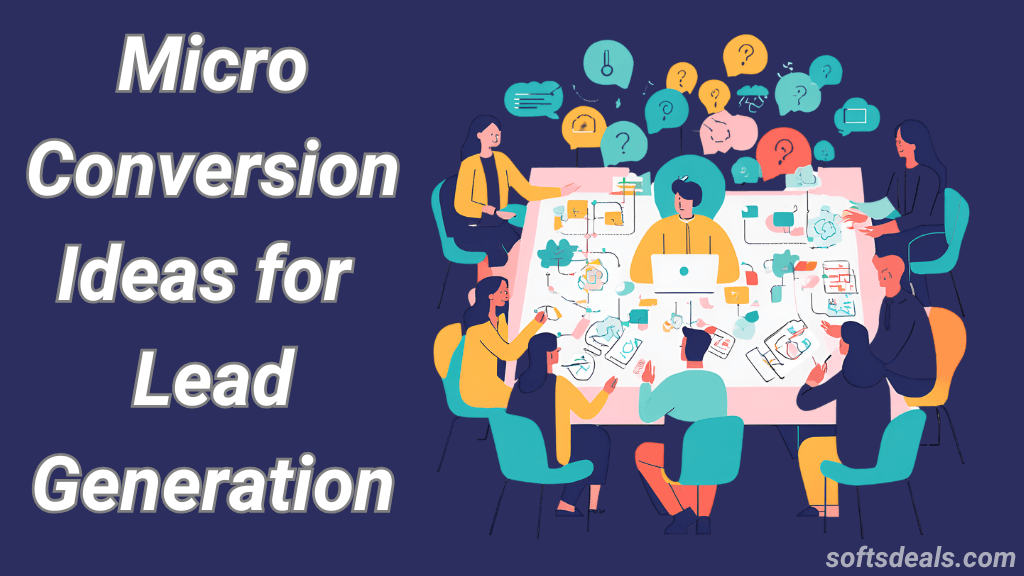In today’s competitive business world, finding the right leads is crucial. B2B lead generation software helps companies discover potential clients efficiently and effectively.
Businesses constantly seek ways to boost their sales pipeline. B2B best lead generation software is a powerful tool in this quest. This software streamlines the process of finding and nurturing leads. It saves time, enhances productivity, and ensures that sales teams focus on high-quality prospects.
With so many options available, choosing the best one can be overwhelming. This post will guide you through the top B2B lead generation tools. We’ll look at their features, benefits, and how they can transform your lead generation process. Ready to find the perfect software for your business? Let’s dive in!
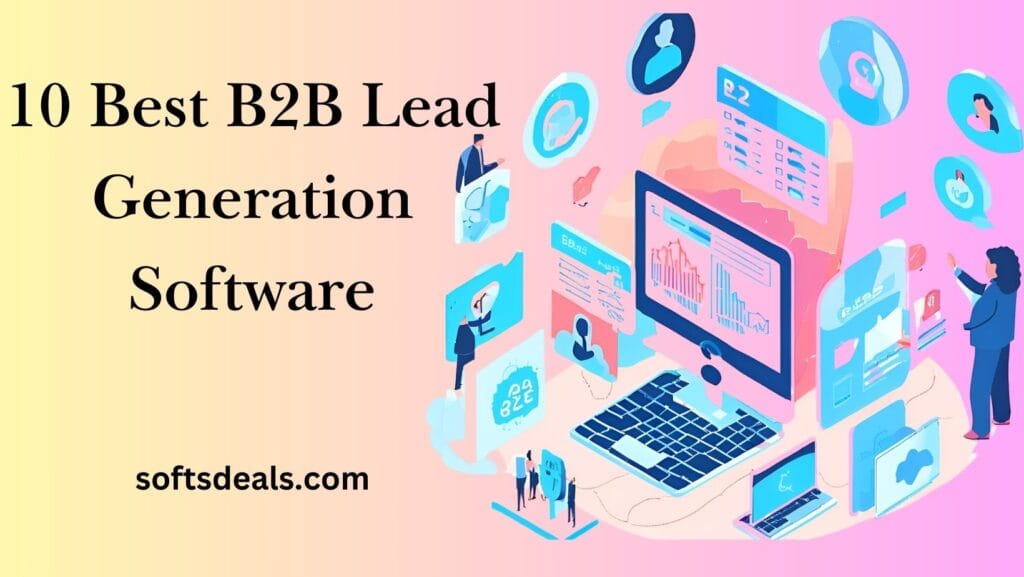
Top B2b Lead Generation Tools
Generating leads is crucial for B2B businesses. The right lead generation software can make this task easier and more efficient. In this blog post, we will explore the best B2B lead generation tools available. These tools offer various features to help you capture, nurture, and convert leads effectively.
Features To Look For
When selecting B2B lead generation software, several key features should be considered to ensure it meets your needs:
- Lead Capturing: Ability to collect leads from various sources like websites, social media, and email campaigns.
- Lead Scoring: Automatically score leads based on criteria such as engagement, firmographics, and behavior.
- CRM Integration: Seamless integration with your existing CRM system to manage and nurture leads efficiently.
- Automation: Automate repetitive tasks such as email follow-ups, data entry, and lead nurturing.
- Analytics and Reporting: Provide insights into lead sources, campaign performance, and conversion rates.
- Personalization: Customize communication based on lead’s behavior and preferences.
Below is a table summarizing the essential features to look for:
| Feature | Importance | Description |
|---|---|---|
| Lead Capturing | High | Collects leads from various sources. |
| Lead Scoring | Medium | Scores leads based on engagement. |
| CRM Integration | High | Integrates with CRM for better management. |
| Automation | High | Automates repetitive tasks. |
| Analytics and Reporting | High | Provides performance insights. |
| Personalization | Medium | Customizes communication. |
Comparative Analysis
Comparing B2B lead generation tools helps in identifying the best fit for your business. Here’s a comparative analysis of top tools:
| Tool | Lead Capturing | Lead Scoring | CRM Integration | Automation | Analytics |
|---|---|---|---|---|---|
| HubSpot | Yes | Yes | Yes | Yes | Yes |
| Marketo | Yes | Yes | Yes | Yes | Yes |
| Zoho CRM | Yes | No | Yes | Yes | Yes |
| Salesforce | Yes | Yes | Yes | Yes | Yes |
| Pardot | Yes | Yes | Yes | Yes | Yes |
HubSpot stands out with its robust features and ease of use. It offers comprehensive lead capturing, scoring, and analytics. Marketo is ideal for larger enterprises with advanced automation needs. Zoho CRM is budget-friendly but lacks some advanced lead scoring capabilities. Salesforce provides excellent CRM integration and is highly customizable. Pardot offers strong automation and analytics, making it a solid choice for data-driven businesses.
Each tool has unique strengths. Identify your business needs and match them with the features offered by these tools to make an informed decision.
Key Benefits Of B2b Software
In the competitive world of B2B, finding and nurturing leads is crucial. Businesses are constantly looking for ways to streamline their processes. That’s where B2B lead generation software comes in. These tools offer a range of benefits that can help companies grow and succeed. Below are some key benefits of using B2B software.
Increased Efficiency
B2B lead generation software can significantly increase efficiency in your business. This software automates many time-consuming tasks. For example:
- Collecting contact information
- Sending follow-up emails
- Tracking interactions with leads
Automation frees up your team to focus on more critical tasks. This can include closing deals and building relationships. It also reduces the chances of human error. Automated systems are less likely to make mistakes compared to manual processes.
Additionally, lead generation software often integrates with other tools. This means your CRM, email marketing, and other systems can work together seamlessly. Integration reduces the need for manual data entry. This ensures that your data is always up-to-date and accurate.
Efficiency is further boosted by real-time analytics. These tools provide insights into your lead generation efforts. You can quickly see what is working and what isn’t. This allows for rapid adjustments to your strategies. In turn, this leads to better results and a higher ROI.
Improved Targeting
Improved targeting is another significant benefit of B2B lead generation software. These tools help you identify and reach the right audience. This ensures your efforts are focused and effective. Here are some ways this is achieved:
- Advanced filtering options to segment your audience
- Customizable criteria to match your ideal customer profile
- Behavioral tracking to understand lead interests
By using these features, you can target your marketing campaigns more accurately. This means you are more likely to reach people who are genuinely interested in your products or services. As a result, your conversion rates improve.
The software also allows you to analyze and refine your targeting strategies. You can track which segments respond best to your campaigns. This helps in fine-tuning your approaches for even better results. Improved targeting means fewer wasted resources. Your marketing budget is spent more wisely, leading to cost savings.
In summary, B2B lead generation software offers powerful tools. These tools help improve efficiency and targeting. These benefits are essential for businesses looking to grow and succeed in a competitive market.
Popular Lead Generation Platforms
Finding the right B2B lead generation software can be a game-changer for your business. With the right tools, you can identify potential clients, nurture relationships, and ultimately, increase your sales. Here, we explore some of the most popular lead generation platforms that can help your business grow.
Hubspot
HubSpot is one of the most well-known lead generation platforms available. It offers a comprehensive suite of tools for marketing, sales, and customer service. Here are some key features of HubSpot:
- Lead Capture Forms: Easily create and embed forms on your website to capture leads.
- Email Marketing: Send personalized emails to your leads and track their engagement.
- CRM Integration: HubSpot’s CRM integrates seamlessly with its lead generation tools.
- Analytics: Get detailed reports on your lead generation efforts and adjust your strategy accordingly.
HubSpot also offers a free version with basic features. This is ideal for small businesses or those just starting with lead generation. For more advanced features, you can choose from various paid plans. The table below provides a quick overview of HubSpot’s pricing:
| Plan | Price | Features |
|---|---|---|
| Free | $0 | Basic features |
| Starter | $50/month | Advanced features |
| Professional | $800/month | Comprehensive tools |
| Enterprise | $3,200/month | All features |
Linkedin Sales Navigator
LinkedIn Sales Navigator is a powerful tool for finding and connecting with potential leads. It leverages LinkedIn’s extensive network to help you identify and engage with decision-makers in your industry. Here are some key features of LinkedIn Sales Navigator:
- Advanced Search: Use advanced filters to find the right leads based on various criteria.
- Lead Recommendations: Get personalized lead recommendations based on your preferences.
- InMail Messaging: Send direct messages to leads even if you are not connected.
- CRM Integration: Seamlessly integrate with popular CRMs like Salesforce.
LinkedIn Sales Navigator offers a free trial, so you can test its features before committing. The table below summarizes the different pricing plans:
| Plan | Price | Features |
|---|---|---|
| Professional | $79.99/month | Basic tools |
| Team | $134.99/user/month | Advanced tools |
| Enterprise | Custom pricing | All features |
Zoominfo
ZoomInfo is a leading B2B lead generation platform that provides access to a vast database of business contacts. It offers a range of features designed to help you find and connect with potential leads. Key features of ZoomInfo include:
- Contact Database: Access a database of over 100 million business contacts.
- Company Insights: Get detailed information about companies, including financials and key executives.
- Lead Scoring: Use advanced algorithms to score and prioritize leads.
- CRM Integration: Integrate seamlessly with popular CRMs like HubSpot and Salesforce.
ZoomInfo offers various pricing plans based on your needs. The table below gives an overview of the pricing options:
| Plan | Price | Features |
|---|---|---|
| Professional | $99/month | Basic tools |
| Advanced | $149/month | Advanced tools |
| Elite | $199/month | All features |
ZoomInfo also offers a free trial, so you can explore its features before making a decision.
Choosing The Right Tool
Choosing the right B2B lead generation software can be a daunting task. With many options available, it’s crucial to select a tool that aligns with your business needs. This section will guide you through key factors to consider, helping you make an informed decision.
Budget Considerations
Budget is a critical factor in choosing the right B2B lead generation software. You need to ensure the tool fits within your financial constraints while delivering the features you need. Here are some points to consider:
- Initial Cost: Evaluate the upfront cost of the software. Some tools require a one-time payment, while others use a subscription model.
- Monthly Fees: Subscription-based tools often charge monthly fees. Compare these fees across different platforms.
- Additional Costs: Look for hidden costs such as training, support, and upgrades. These can add up over time.
Here’s a comparison table to help you understand the different pricing models:
| Software | Initial Cost | Monthly Fee | Additional Costs |
|---|---|---|---|
| Tool A | $500 | $50 | Training: $100, Support: $20/month |
| Tool B | $0 | $100 | Upgrades: $200/year |
| Tool C | $300 | $30 | None |
Consider the total cost of ownership over a year or more. This helps you understand the long-term financial impact.
Scalability
Your business is likely to grow. Thus, scalability is essential in choosing a lead generation tool. The software should handle an increase in data, users, and complexity without affecting performance.
Key considerations for scalability include:
- Data Handling: The software should manage large volumes of data efficiently. This includes storing and retrieving data quickly.
- User Capacity: As your team grows, the tool should support multiple users without additional costs or performance issues.
- Feature Expansion: Ensure the tool can add new features or integrate with other systems as your needs evolve.
Here’s a simple checklist to assess scalability:
- Can the tool handle a 100% increase in data?
- Does it support unlimited users?
- Are there options to integrate with CRM, email marketing, and other tools?
Choosing a scalable tool ensures your investment grows with your business. This prevents the need for frequent changes, saving time and money in the long run.
Integrating With Existing Systems
Choosing the best B2B lead generation software requires careful consideration. One crucial factor is how well the software integrates with your existing systems. Smooth integration ensures seamless workflows and maximizes productivity.
Crm Compatibility
CRM compatibility is essential for effective lead management. The best B2B lead generation software should integrate seamlessly with your Customer Relationship Management (CRM) system. This compatibility ensures that all lead data is automatically synchronized, reducing manual entry and errors.
Look for software that supports popular CRMs like Salesforce, HubSpot, and Zoho. These platforms offer robust APIs and built-in integrations that facilitate data flow between systems. This integration allows your team to:
- Automatically import and export lead data
- Track lead interactions and status
- Generate detailed reports and analytics
For example, integrating with Salesforce allows you to:
| Feature | Benefit |
|---|---|
| Lead Capture | Auto-capture leads from web forms |
| Lead Scoring | Prioritize leads based on engagement |
| Lead Nurturing | Automate follow-up emails |
Integration with your CRM streamlines your sales process. It ensures your sales team has accurate, up-to-date information. This leads to better decision-making and increased efficiency.
Api Access
API access is another critical aspect of integration. An API, or Application Programming Interface, allows different software systems to communicate with each other. The best B2B lead generation software should offer robust API access.
With API access, you can:
- Customize integration to fit your specific needs
- Automate data transfer between systems
- Enhance functionality with third-party tools
For instance, if your software provides a RESTful API, you can:
- Fetch lead data in real-time
- Update lead statuses programmatically
- Trigger workflows based on lead activities
Consider software that offers comprehensive API documentation. This makes it easier for your developers to implement and maintain integrations. Also, ensure the software supports secure API calls to protect sensitive data.
APIs are powerful tools for extending the capabilities of your lead generation software. They enable you to create a tailored solution that fits your business processes perfectly.
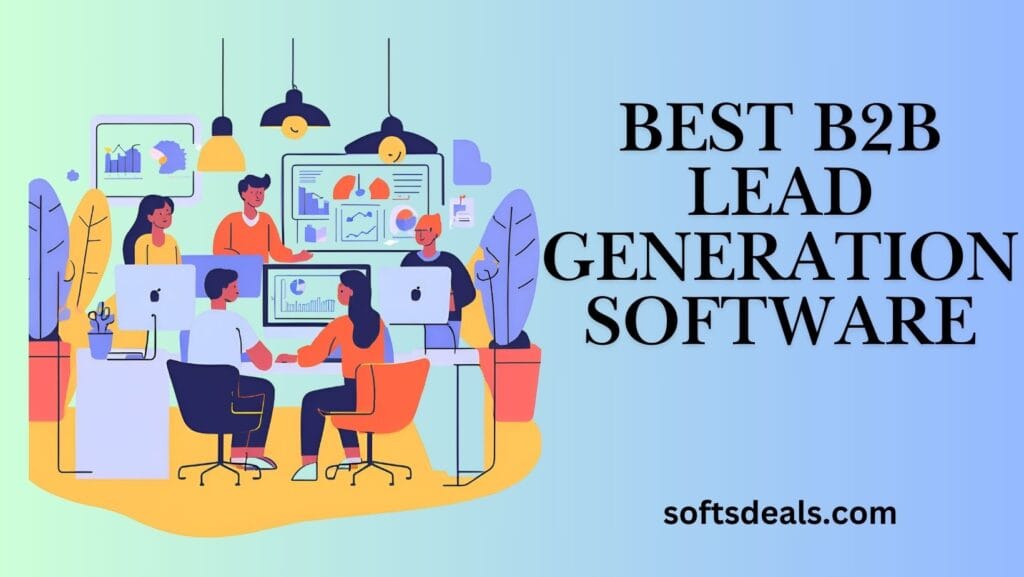
Best Practices For Lead Generation
Choosing the best B2B lead generation software can significantly enhance your business’s ability to attract and convert potential clients. The right tools can streamline your marketing efforts and help you reach your target audience more effectively. Understanding the best practices for lead generation is crucial to maximizing the effectiveness of these tools. Let’s explore some of these practices in detail.
Content Marketing
Content marketing remains a cornerstone of effective B2B lead generation. It involves creating valuable, relevant content that attracts and engages your target audience. Here are some essential practices for content marketing:
- Quality Content: Focus on producing high-quality content that addresses the pain points and needs of your audience. This could include blog posts, whitepapers, case studies, and eBooks.
- SEO Optimization: Ensure that your content is optimized for search engines. Use relevant keywords, meta descriptions, and alt tags to improve your search engine ranking.
- Content Distribution: Share your content across various platforms like social media, email newsletters, and industry forums to reach a broader audience.
- Interactive Content: Utilize interactive content such as quizzes, surveys, and webinars to engage users and collect valuable data.
A well-executed content marketing strategy can position your brand as an industry leader, build trust with potential clients, and generate quality leads. A table summarizing key content types and their purposes can be helpful:
| Content Type | Purpose |
|---|---|
| Blog Posts | Inform and educate the audience |
| Whitepapers | Provide in-depth analysis |
| Case Studies | Showcase success stories |
| eBooks | Offer comprehensive guides |
Email Campaigns
Email campaigns are an effective way to nurture leads and move them through the sales funnel. Here are some best practices for creating successful email campaigns:
- Segmentation: Segment your email list based on criteria such as industry, job title, and behavior. This allows you to send more personalized and relevant emails.
- Personalization: Use the recipient’s name and tailor the content to their specific interests and needs. Personalized emails have higher open and click-through rates.
- Clear Call-to-Action (CTA): Each email should have a clear and compelling CTA that guides the recipient on what to do next, such as downloading a resource or scheduling a demo.
- A/B Testing: Conduct A/B tests on different elements of your email, such as subject lines, CTAs, and layouts, to determine what works best.
Effective email campaigns can keep your audience engaged and informed about your offerings. Below is a table summarizing key elements of a successful email campaign:
| Element | Importance |
|---|---|
| Subject Line | Encourages recipients to open the email |
| Personalization | Makes the email more relevant to the recipient |
| CTA | Guides the recipient on the next step |
| Design | Makes the email visually appealing |
Tracking And Analyzing Leads
Generating leads is just the first step in the sales process. Tracking and analyzing these leads is crucial for optimizing your B2B lead generation strategy. With the right software, you can gain insights into lead behavior, pinpoint the most effective channels, and make data-driven decisions to improve conversion rates. Let’s delve into the essential metrics to monitor and how to leverage analytics tools for better lead management.
Metrics To Monitor
Monitoring key metrics helps you understand how well your lead generation efforts are performing. Here are some vital metrics to keep an eye on:
- Lead Source: Identify where your leads are coming from, such as social media, email campaigns, or organic search. This helps allocate resources to the most effective channels.
- Conversion Rate: Track the percentage of leads that turn into customers. A high conversion rate indicates effective lead nurturing strategies.
- Cost per Lead (CPL): Calculate the total cost involved in acquiring a lead. This helps assess the ROI of your marketing efforts.
- Lead Response Time: Measure the time taken to respond to a lead. Quick responses often result in higher conversion rates.
- Lead Quality: Evaluate leads based on their potential to convert. High-quality leads typically have a better fit with your ideal customer profile.
Using a table can help you visualize these metrics better:
| Metric | Description |
|---|---|
| Lead Source | Origin of the lead |
| Conversion Rate | Leads turning into customers |
| Cost per Lead (CPL) | Cost to acquire a lead |
| Lead Response Time | Time to respond to a lead |
| Lead Quality | Potential to convert |
Using Analytics Tools
Analytics tools play a crucial role in tracking and analyzing leads. They help you gather data, generate reports, and gain insights to refine your strategies. Here are some popular analytics tools:
- Google Analytics: Provides detailed insights into website traffic, user behavior, and conversion rates.
- HubSpot: An all-in-one platform that offers lead tracking, email marketing, and sales automation.
- Salesforce: A robust CRM system that helps manage leads, track interactions, and analyze sales performance.
- Mixpanel: Focuses on user behavior analytics to help you understand how users interact with your product.
- Zoho Analytics: Offers data visualization and reporting tools to track key metrics and trends.
To effectively use these tools, follow these steps:
- Set Clear Goals: Define what you want to achieve with your lead generation efforts.
- Integrate Tools: Ensure your analytics tools are integrated with your CRM and marketing platforms.
- Track Metrics: Regularly monitor the key metrics mentioned above.
- Analyze Data: Use the insights to identify patterns, strengths, and areas for improvement.
- Refine Strategies: Adjust your lead generation tactics based on data-driven insights.
Incorporating these analytics tools into your B2B lead generation strategy will help you make informed decisions and improve your overall performance.
Future Trends In Lead Generation
In the fast-evolving world of B2B lead generation, staying ahead of the curve is crucial. Emerging trends are shaping the future of lead generation, making it more efficient and effective. Let’s explore some of these future trends in lead generation, focusing on AI and automation, and personalization techniques.
Ai And Automation
Artificial Intelligence (AI) and automation are transforming the way businesses generate leads. These technologies streamline the lead generation process, saving time and increasing accuracy.
Here are some ways AI and automation are impacting lead generation:
- Predictive Analytics: AI analyzes past data to predict future customer behaviors, helping businesses target the right audience.
- Chatbots: Automated chatbots engage with website visitors, answer queries, and collect contact details, ensuring no potential lead is missed.
- Email Campaigns: Automation tools send personalized emails at the right time, increasing the chances of engagement.
Consider this comparison table to understand the impact of AI and automation:
| Traditional Lead Generation | AI and Automation |
|---|---|
| Manual data entry | Automated data collection |
| Generic email campaigns | Personalized email sequences |
| Reactive customer support | Proactive chatbot engagement |
Using AI and automation reduces the workload on sales teams. It ensures a more targeted approach, leading to higher conversion rates.
Personalization Techniques
Personalization techniques are becoming increasingly important in lead generation. Tailoring content and communication to individual prospects makes them feel valued and understood.
Here are some effective personalization techniques:
- Dynamic Content: Websites show different content based on the visitor’s industry, location, or behavior.
- Personalized Emails: Emails are customized with the recipient’s name, company, and relevant interests.
- Behavioral Targeting: Ads and messages are tailored based on the user’s past interactions with the brand.
Personalization can be implemented at various levels:
| Level | Example |
|---|---|
| Basic | Using the recipient’s name in emails |
| Intermediate | Recommending products based on past purchases |
| Advanced | Creating unique content for each visitor segment |
Personalization enhances the customer experience. It increases the likelihood of converting leads into loyal customers.
Frequently Asked Questions
What Is B2b Lead Generation Software?
B2B lead generation software helps businesses attract, capture, and manage leads. It automates and streamlines lead generation processes. This software enhances marketing and sales efficiency.
How Does Lead Generation Software Work?
Lead generation software captures potential customer information via forms, landing pages, and other tools. It then organizes and scores these leads. This allows sales teams to prioritize and engage effectively.
What Are The Benefits Of Using Lead Generation Software?
Lead generation software improves lead quality and quantity. It also automates repetitive tasks, saving time. Additionally, it provides valuable insights and analytics for better decision-making.
Can Small Businesses Use Lead Generation Software?
Yes, small businesses can use lead generation software. It helps them compete with larger companies. Moreover, it offers scalable solutions tailored to their needs and budget.
Conclusion
Choosing the right B2B lead generation software can boost your business growth. These tools simplify finding potential clients. They also streamline communication and improve efficiency. Evaluate your needs and budget before making a decision. Explore the features each software offers.
A suitable tool can transform your lead generation process. Invest wisely to see significant benefits. Happy lead generating!
